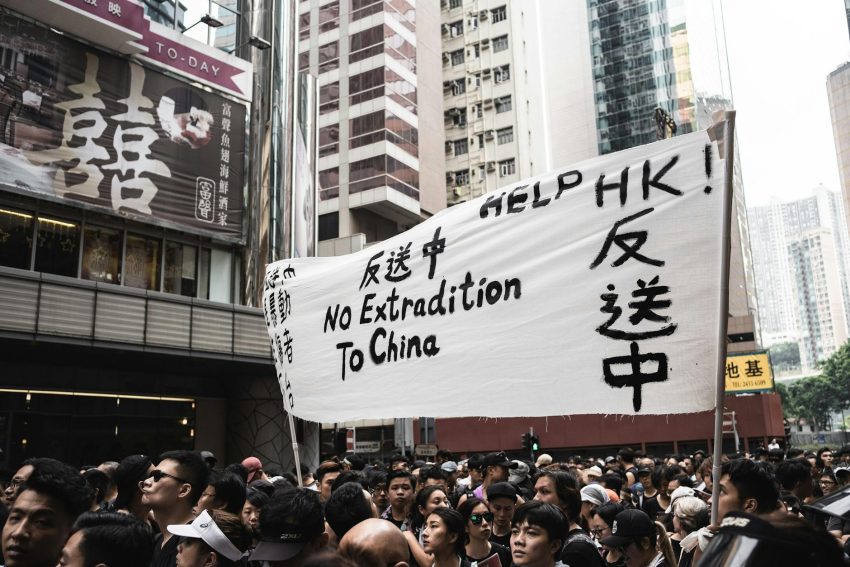In recent years, discussions surrounding China Relations have intensified, revealing underlying tensions that have shaped this critical geopolitical dynamic. Historically, the intricate web of interactions between nations has been colored by mutual interests, yet the rise of economic rivalry raises significant implications for global stability. As trade disputes escalate and national security concerns loom large, it becomes increasingly clear that the complexities of political tensions may not only strain diplomatic ties but also lead to far-reaching consequences for nations worldwide. Understanding the historical context and current climate is essential to grasp why China should not be considered a reliable ally in today’s rapidly evolving landscape.
The Historical Context of China Relations
Understanding the China Relations that exist today requires a deep dive into a rich historical context that has shaped interactions between nations. Historically, the relationship between the United States and China has undergone significant fluctuations, influenced by various geopolitical shifts and global events.
In the early 20th century, the relationship between these two nations was relatively simplistic, rooted primarily in trade. American missionaries and businesses began to pave the way for more formalized diplomatic ties, culminating in the establishment of the U.S. consulate in Tianjin in 1858. However, the tumultuous century ahead would see these ties tested repeatedly.
The rise of communist ideology in the mid-20th century marked a dramatic turning point. The Chinese Civil War and the eventual establishment of the People’s Republic of China in 1949 fundamentally altered the landscape. The U.S. viewed the emergence of communist China with suspicion, particularly during the Cold War, when the two nations stood on opposing sides. This period was characterized by hostility and misunderstandings, leading to events like the Korean War, wherein China supported North Korea against U.S. forces.
A rekindling of relations began in the early 1970s, buoyed by diplomatic efforts such as President Nixon’s historic visit to China in 1972. This initiated a phase of engagement, marked by significant economic exchanges and cultural exchanges, even leading to China gaining entry into the World Trade Organization in 2001.
Despite these advancements, underlying tensions remain persistent, fueled by differing ideologies, territorial disputes, and accusations of human rights violations. Today’s China Relations are a product of this complex historical saga, resulting in a cautious engagement that often swings between partnership and rivalry. This intricately woven history showcases the ongoing and evolving dynamics that define U.S.-China interactions in the modern world.

Economic Rivalry and Its Implications on China Relations
The economic rivalry between the United States and China has become a defining feature of their relationship in recent years. This rivalry encompasses various sectors, including technology, trade, and investment, creating significant implications for China Relations. As the world’s two largest economies, both countries are vying for global influence, making their economic interactions intricate and competitive.
One of the most notable aspects of this rivalry is the trade imbalance. The U.S. has consistently experienced a massive trade deficit with China, leading to frustration among American policymakers and businesses. This tension has prompted various tariffs and trade barriers from the U.S. government, aiming to protect domestic industries and encourage American manufacturing. Such actions have not only strained China Relations but also had a ripple effect on global markets. Trade wars disrupt supply chains and create uncertainty, which can lead to diminished economic growth for both nations.
Moreover, the race for technological supremacy amplifies the economic rivalry. The U.S. perceives China’s advancements in areas such as artificial intelligence, telecommunications, and biotechnology as not just economic challenges, but as national security threats. This perception has led to increased scrutiny of Chinese companies, with the U.S. banning or restricting multiple firms from engaging in business within its borders. Such measures are designed to safeguard sensitive technologies while stoking tensions within the broader economic framework.
Investment patterns also reflect this rivalry. American corporations are becoming increasingly cautious about investments in China due to concerns over intellectual property theft and regulatory opacity. Simultaneously, China is striving to expand its Belt and Road Initiative, seeking to increase its global economic footprint in developing economies. These competing ambitions illustrate a landscape where economic interdependence collides with strategic competition, ultimately shaping the future of China Relations.
As the two nations navigate their economic paths, the implications of this rivalry continue to evolve, paving the way for further complexities in diplomatic engagements and international policies.
Political Tensions and National Security Concerns in China Relations
The political landscape surrounding China Relations has become increasingly strained, exhibiting significant complexities that warrant close examination. Contributing factors to these tensions include a rise in military assertiveness, territorial disputes, and a perceived threat to global democratic values. As nations grapple with these challenges, understanding the ramifications of such political tensions on national security remains essential.
One of the most pressing issues is China’s aggressive military posture in the South China Sea. By claiming vast maritime territories and conducting military drills in disputed areas, China has sparked tensions with neighboring countries and raised alarms within the international community. This assertiveness undermines regional stability and poses potential security risks for maritime trade routes vital to global economies. The United States and its allies have responded by increasing military presence and conducting joint exercises, aiming to counterbalance China’s influence while ensuring the freedom of navigation.
Furthermore, the ongoing Hong Kong protests and China’s handling of these demonstrations have also exacerbated political strains. The erosion of autonomy and suppression of dissent in Hong Kong signal a broader threat to democratic principles. This situation highlights the challenges faced by nations allied with the United States as they navigate their relationships with China while upholding their own democratic values.
Moreover, the proliferation of technology and cyber capabilities plays a pivotal role in exacerbating political tensions. Western nations have grown increasingly wary of Chinese technology firms, which they perceive as potential instruments for espionage. This has led to heightened scrutiny and restrictions against Chinese tech companies, further straining ties between the major powers.
Ultimately, the intertwining of political tensions with national security concerns in China Relations is a multifaceted issue. The consequences of these tensions extend beyond military confrontations; they influence diplomatic relations, economic partnerships, and global governance structures. Understanding this landscape is crucial as nations contend with the shifting power dynamics in an increasingly interconnected world.
Frequently Asked Questions
What are the main reasons people believe China is not a reliable ally?
Many people argue that China is not a reliable ally due to its history of aggressive territorial expansion, particularly in the South China Sea, where it has made claims over disputed waters and islands that belong to other nations. Additionally, accusations of intellectual property theft and espionage have strained relationships with several countries. Furthermore, China’s authoritarian regime and lack of transparency in its governance have raised concerns about its commitment to global cooperation and respect for human rights.
How has China’s economic rise affected its relationships with other countries?
China’s rapid economic growth has reshaped global trade dynamics but also contributed to tensions with other nations. As China has become a dominant economic power, it has utilized its influence to assert its interests, often at the expense of traditional allies. For instance, investments through initiatives like the Belt and Road Initiative have led to dependency among smaller countries, fostering resentment in those nations that view China’s actions as neo-colonialism. Additionally, China’s approach to trade has sometimes led to disputes, notably with the United States, concerning tariffs and trade policies.
What impact does China’s geopolitical behavior have on global security?
China’s assertive actions and military expansion in the Asia-Pacific region have caused significant shifts in global security dynamics. Its military buildup, particularly in the South China Sea and its relationships with authoritarian regimes, poses challenges to international norms and stability. Moreover, China’s partnerships with countries like Russia and its stance on global conflicts can complicate diplomatic efforts. These actions may trigger an arms race in the region and force countries, especially neighboring ones, to reconsider their defense strategies, thus impacting overall global security.
